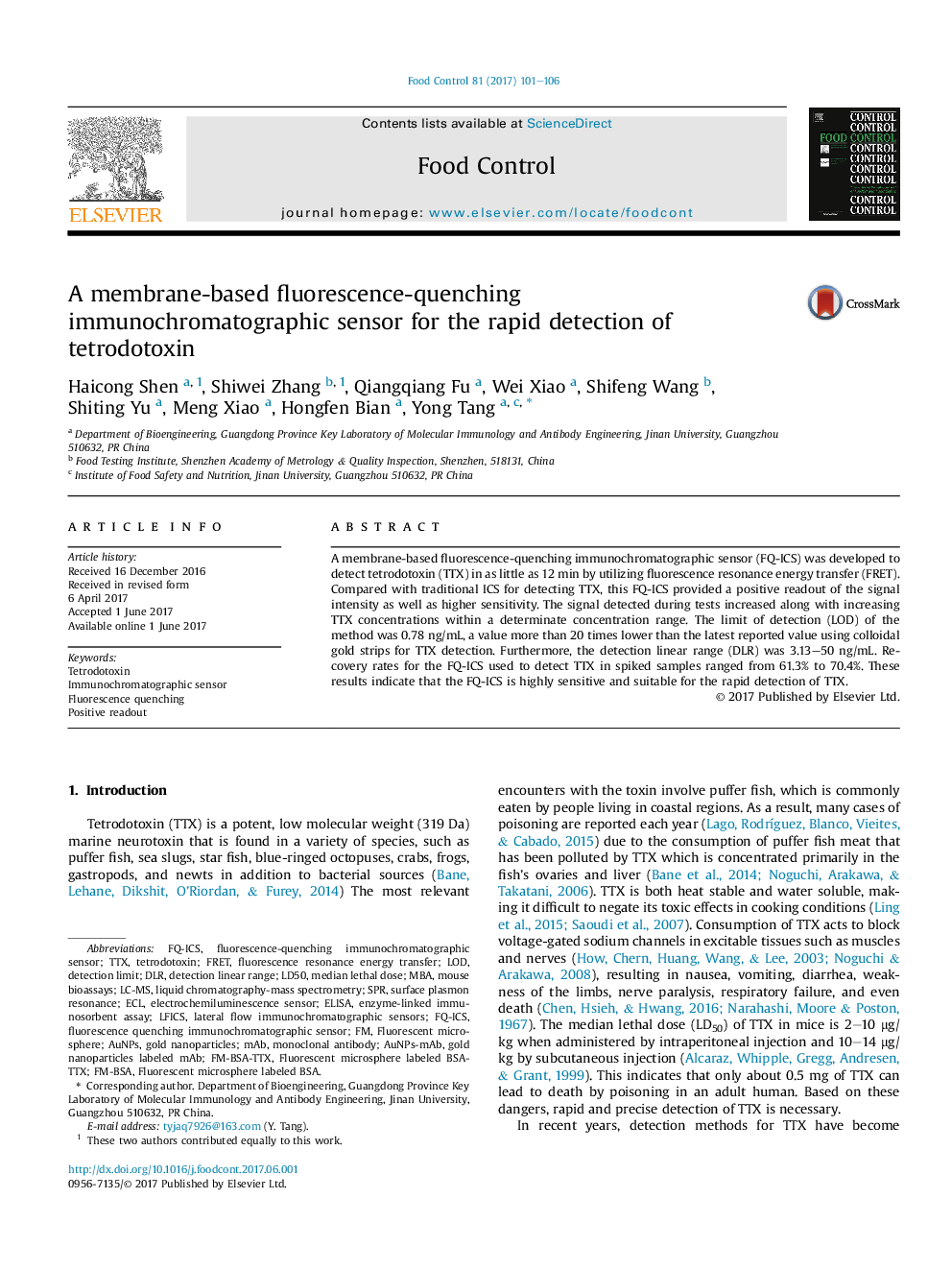| Article ID | Journal | Published Year | Pages | File Type |
|---|---|---|---|---|
| 5767185 | Food Control | 2017 | 6 Pages |
â¢A fluorescence-quenching strip was applied to rapid, positive readout, and high sensitive tetrodotoxin detection.â¢This strip provided a turn-on readout mode of fluorescence signal, which was more consumer-friendly.â¢The visual detection limit of the strip was 20 times lower than colloidal gold strip for tetrodotoxin detection.
A membrane-based fluorescence-quenching immunochromatographic sensor (FQ-ICS) was developed to detect tetrodotoxin (TTX) in as little as 12Â min by utilizing fluorescence resonance energy transfer (FRET). Compared with traditional ICS for detecting TTX, this FQ-ICS provided a positive readout of the signal intensity as well as higher sensitivity. The signal detected during tests increased along with increasing TTX concentrations within a determinate concentration range. The limit of detection (LOD) of the method was 0.78Â ng/mL, a value more than 20 times lower than the latest reported value using colloidal gold strips for TTX detection. Furthermore, the detection linear range (DLR) was 3.13-50Â ng/mL. Recovery rates for the FQ-ICS used to detect TTX in spiked samples ranged from 61.3% to 70.4%. These results indicate that the FQ-ICS is highly sensitive and suitable for the rapid detection of TTX.
